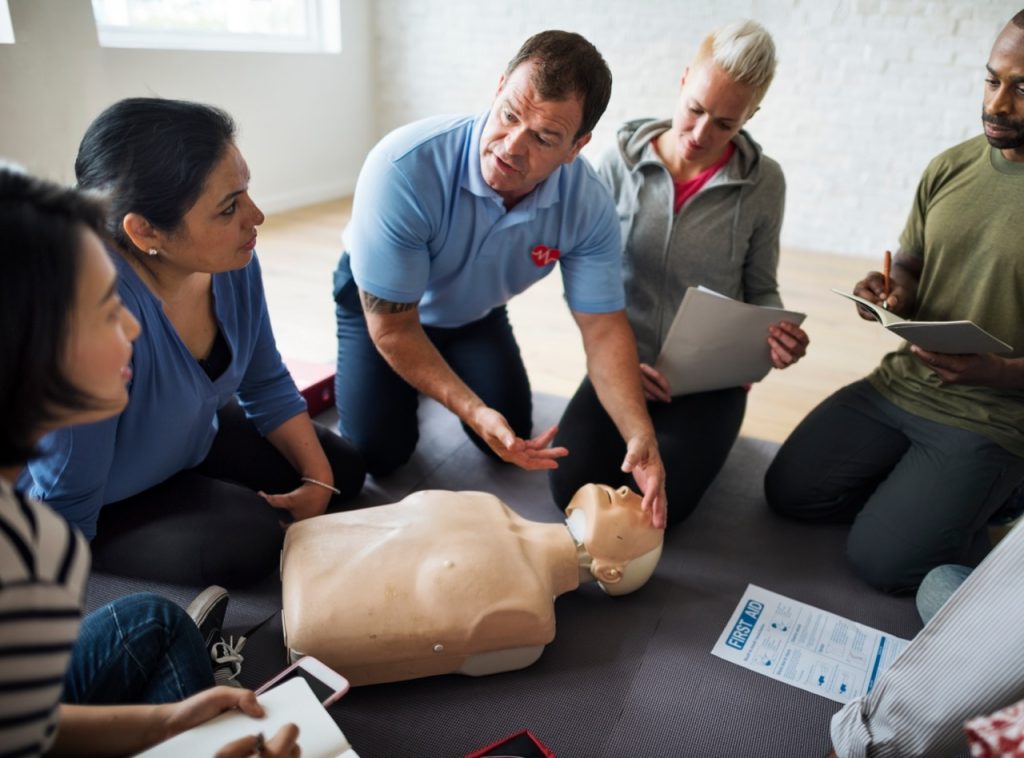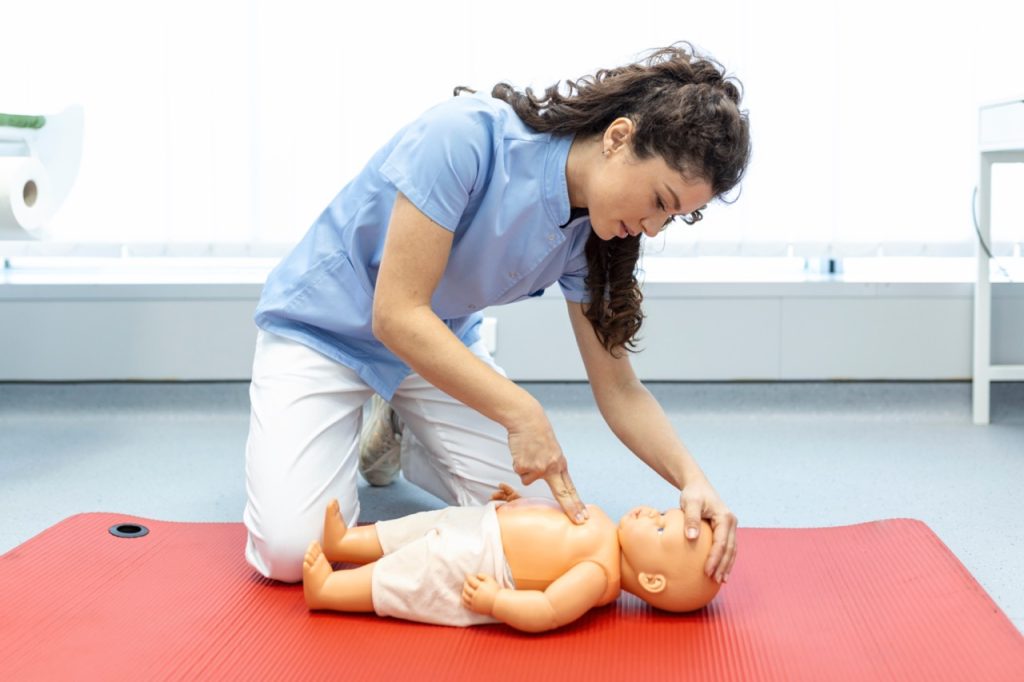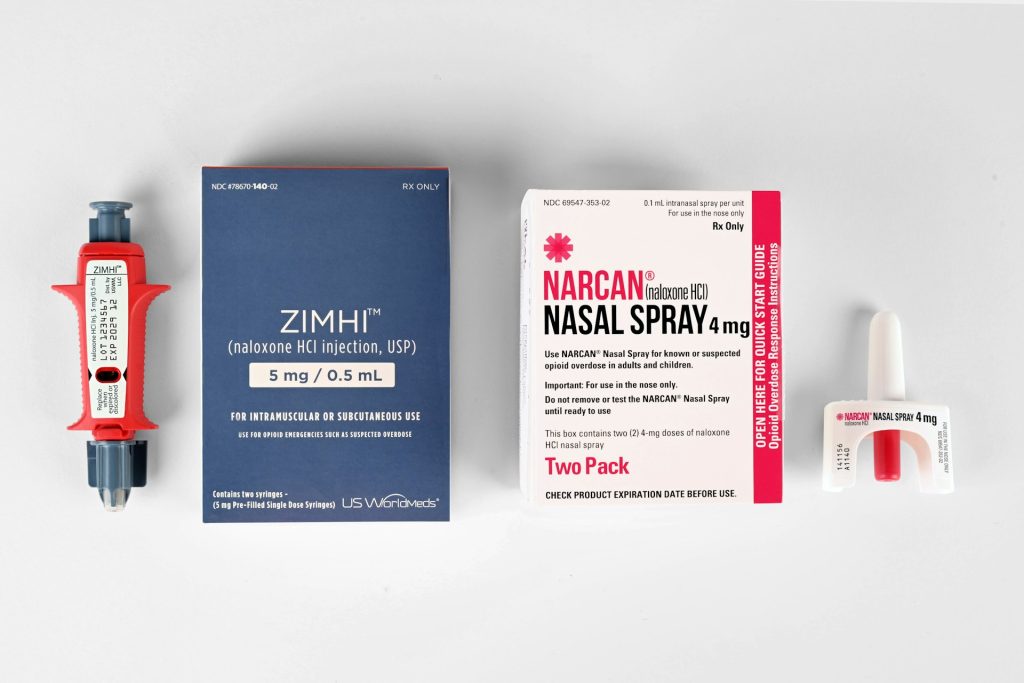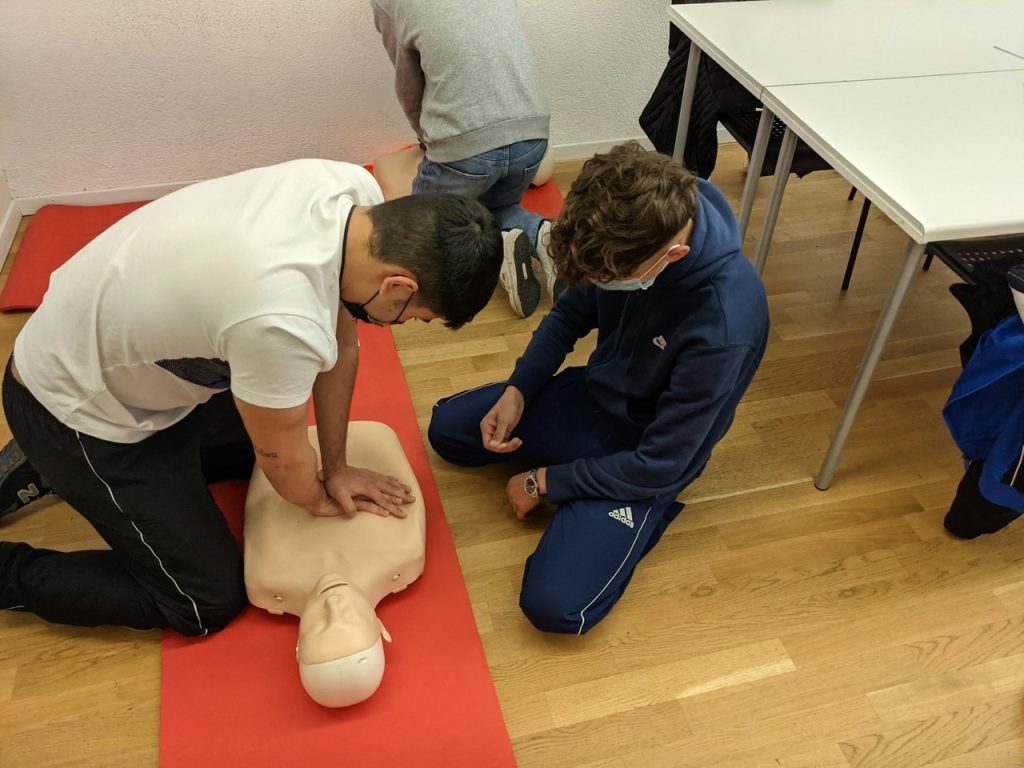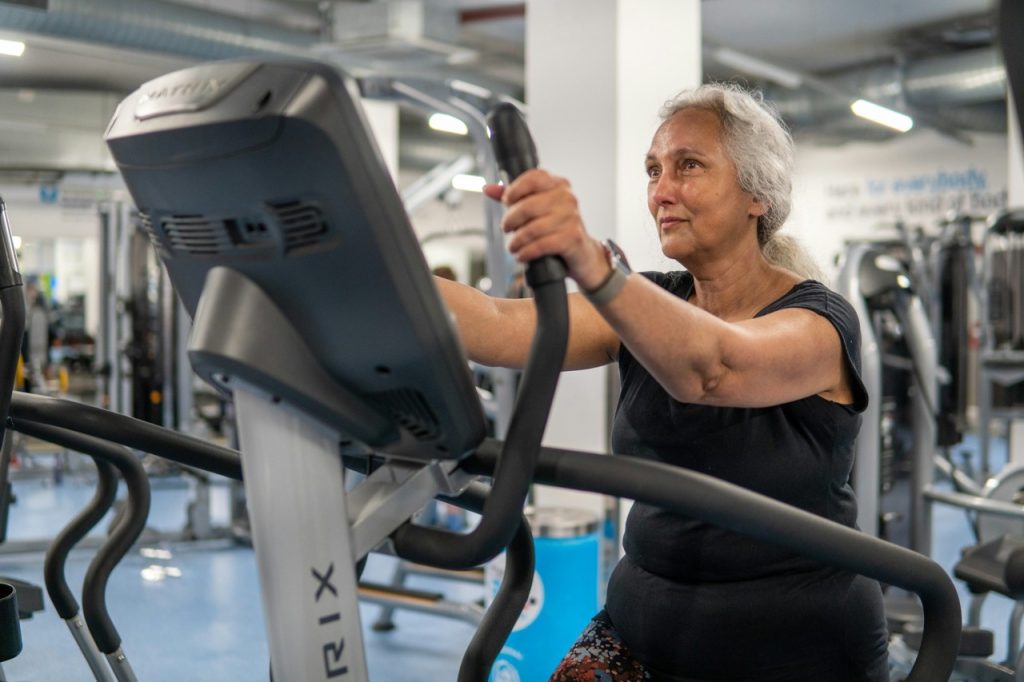As with any class or course, you might anticipate that CPR certification takes a long time. After all, wouldn’t something so crucial to someone’s safety take days to master? With years of experience offering certifications in various locations, we know exactly what it takes at HeartCert, and we promise, it’s a lot more doable than you think. How long does it really take to get CPR certified? We’ll cover that and more in this blog.
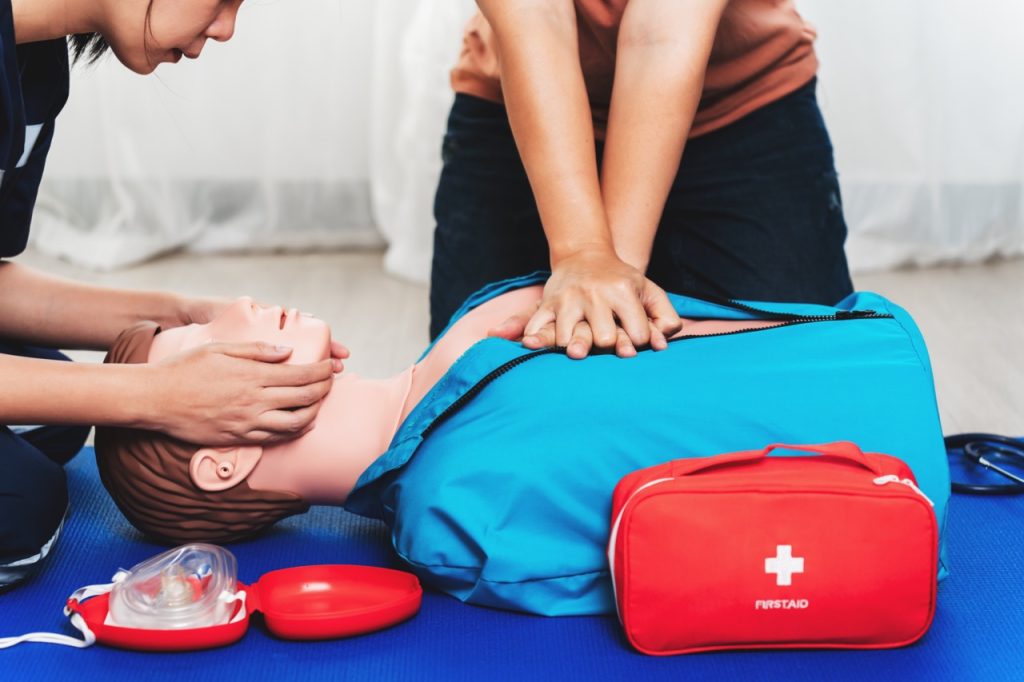
What Is CPR?
CPR (cardiopulmonary resuscitation) is the life-saving response someone can perform to keep blood pumping and keep someone alive until more advanced measures take place. Oftentimes, CPR is used as an emergency response to:
- Cardiac arrest
- Choking
- Electrocution
- Drug overdoses
- Suffocation
- Drowning
The goal of CPR is to keep a person’s blood flowing and respond in an emergency to improve someone’s odds of surviving. Oftentimes, the practice occurs until a regular heartbeat returns or until help arrives. In the scope of training, it’s often accompanied by learning other life-saving techniques and first-aid responses, depending on which course you take.
Related Blog: What is CPR and Why is it Important?
CPR Certification Types
To understand just how long CPR takes to get certified, it’s important to know what goes into each course and certification. Here are the main CPR certifications and what the classes offer:
Basic CPR and First Aid Training
Basic CPR and first aid training covers the basics in an emergency situation. It entails how to apply chest compressions, enact rescue breathing, and respond to choking. On top of that, it also covers the basics in emergency responses and wound care.
CPR and AED (Automated External Defibrillator) Training
CPR and AED courses include the basics of utilizing both cardiopulmonary resuscitation and how to use an automated external defibrillator. While this might seem more intensive than other courses, it only takes around four hours to learn the essentials.
BLS (Basic Life Support) Training
Basic life support (BLS) courses are a bit more intensive than the CPR essentials, but they still only take 4-6 hours, with renewal courses taking half the time. This advanced training is geared towards health professionals who need to get certified in their field.
Related Read: The Difference Between a BLS and a Heartsaver Course
ACLS (Advanced Cardiac Life Support) Training
Advanced cardiovascular life support (ACLS) is the most comprehensive course that medical professionals can take to learn the proper response in an emergency. Not only does it include the fundamentals of CPR, but it also touches on advanced life support techniques, such as how to manage cardiopulmonary arrest and cardiovascular events. It teaches early recognition and management in emergencies, including:
- Responding to respiratory and cardiac arrest, peri-arrest conditions, ACS, and strokes
- Related pharmacology
- Opening airways
- How to lead and support a resuscitation team
How Long Do CPR Classes Take?
Now, the question you’ve been waiting for: How long do CPR classes take? The average CPR class takes just four hours to learn the basics. However, if you’re learning more advanced courses, such as advanced cardiac life support (ACLS), that could take a day or two and lasts three times as long as the base course, as it involves more intensive training. For most people and medical professionals, however, CPR is relatively quick and easy. Around four hours of learning is all it takes to get certified to save a life.
Types of Training and CPR Courses
Now that you have a better understanding of how long CPR courses are expected to take, you might be wondering what types of courses are available. Many establishments offer a variety of in-person and online courses and applications to help you get your CPR certification. Here are a few types of training and CPR courses that we offer at HeartCert:
- Individual training
- Organizational training
- Nursing and CNA training
- Private kiosk training
- Virtual training
- Online training
Where to Get CPR Certified
Now that you know how long it takes to get certified in CPR, you might be interested in pursuing a course so you can learn the proper techniques to save a life. Here at HeartCert, we offer a surplus of courses, both online and in-person, to match your individual or organizational needs. Reach out today if you’re ready to get started.
HeartCert is your trusted training partner for CPR, ACLS, PALS, EMR, First Aid, CNA, IV, EKG and more, throughout the United States.
Courses include CPR/AED/First Aid, Basic Life Support (BLS), Advanced Cardiac Life Support (ACLS), Pediatric Advanced Life Support (PALS), Certified Nursing Assistant training, IV training, EKG training, babysitter basics and more. Courses and certifications from both the American Heart Association and American Red Cross are available. We offer virtual courses and certifications, in all 50 states as well as in-person classes at our headquarters, HeartCert CPR Eagan and major cities in Iowa, Illinois, Georgia, Michigan, Minnesota, Mississippi, Nebraska, Pennsylvania, Texas and Wisconsin.


